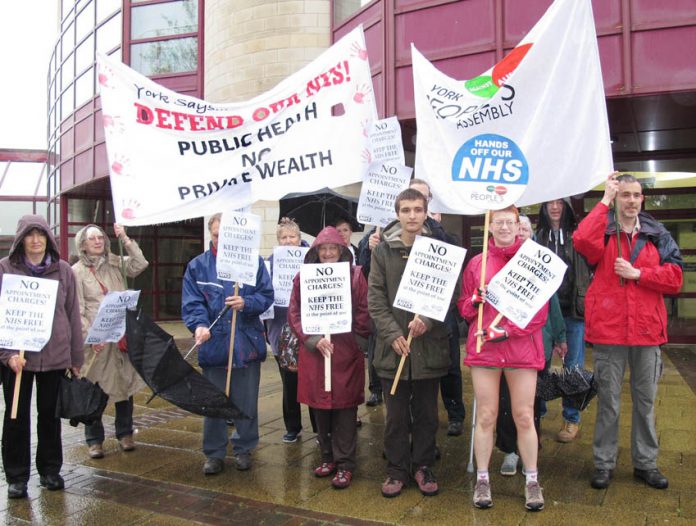
THE crisis in primary care was the topic of an open microphone discussion at the LMC GPs conference in York yesterday morning. Speaker after speaker outlined the drastic shortage of GPs, the extended working day, the massive burden of paperwork, all causing workload burn out, early retirement and emigration.
Dr Hugh Brown from Ayshire said that for the first time in his 21 years experience, there were 11 vacancies in the 55 practices in his area.
There were very few applicants for trainee GP vacancies and these were being left unfilled. Some had given up because the extending day was incompatible with family life. He said: ‘We are bleeding GPs at both ends of the career span.’
Dr Bramall Stainer from Hertfordshire LMC said 50% of medical students need to choose general practice to keep it going. She said: ‘They say we need 10,000 full time GPs, but in fact we need 20,000. I’m 35 and a partner. I know twelve of my colleagues who are leaving this year. This destabilisation is taking place now. This is a watershed moment.’
Dr Michael Watson, GPC, said in Wessex, 500 GPs are leaving and only 300 are being trained.
A speaker from the Welsh LMC said in his area five large established practices are looking to close.
‘This is an inescapable end game. Why would doctors want to choose general practice today. We must give GPC support to mobilise to promote change and opinion to salvage UK general practice, which was the jewel in the crown of the NHS.’
Earlier Dr Beth McCarron Nash, GPC, promoted a new GPC campaign called ‘Your GP cares’, which was launched on the 13th May.
Motion 50, which claimed the current funding formula for GP services was unfit for purpose and should be replaced with a Payments by Results (PBR ) based contract, was defeated.
Dr Fitton from Northants, opposed this ‘fee for item of service’ which he had seen in Canada and the US.
Dr Vautrey, GPC, advised that going for PBR would not solve the lack of funding. It would mean that existing money would go into paying for ‘widgets’ of care only.
He said PBR did not work for hospitals either, which remain under resourced. ‘There would then be micromanagement of the widgets, leading to more likelihood that private providers would be invited in’, he warned.